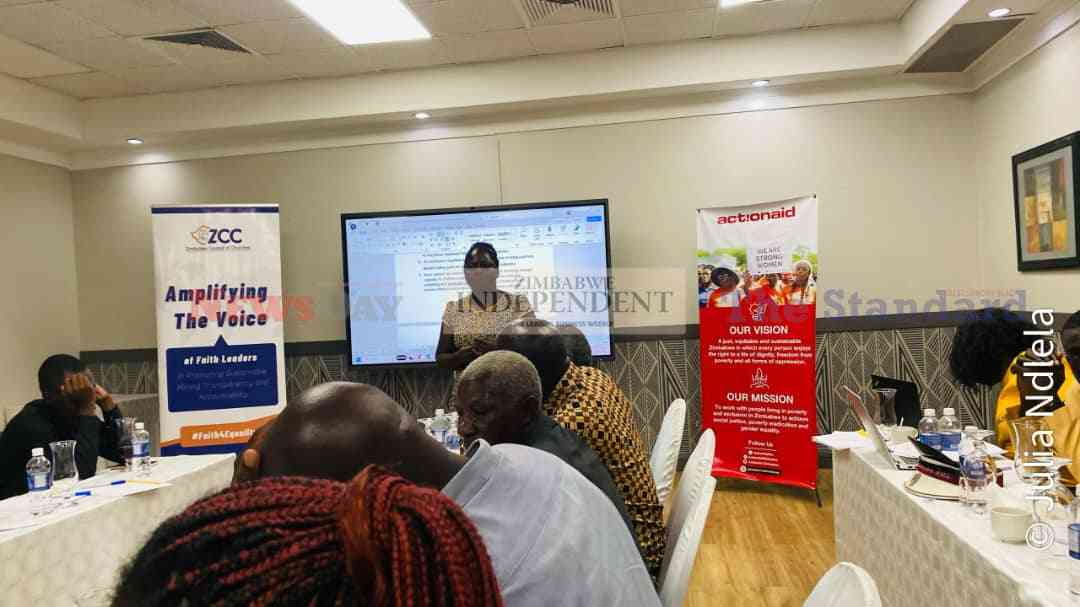
HARARE, Feb 17 (NewsDay Live) - Communities in Goromonzi district, Mashonaland East province, have called on authorities to tighten mining regulations, including imposing deterrent penalties on environmental polluters.
This came out during a stakeholders meeting held in the area last week to craft an environmental sustainability governance framework. The meeting was co-organised by ActionAid Zimbabwe, Zimbabwe Council of Churches, and Publish What You Pay Coalition.Councillors and residents raised concerns over the pollution of water sources and the failure of mining companies to plow back into the communities they operate in."Companies are being penalized by EMA for pollution, but it's not effective," said SamuelGamanya, a local environmental monitor."Mining companies pollute, they pay a small fine, and they keep polluting, the penalty doesn't hit their pockets while people are getting sick, and the pollution continues.“For these big mining companies, it's nothing. They will keep going against the law because the fine is not stiff while people are left with effects like degradation.”The maximum fine for environmental pollution is US$ 5,000.Goromonzi's ward 17 councillor, Tavengwa Bachi said communities were not getting a fair share of revenue generated from mining activities.Masimba Manyanya from Goromonzi Residents Association poked holes in the newly-enacted Finance Act 2024 saying it promoted pilferage.“The new Finance Act put into law last year is causing leakages in minerals, there is a certain accounting leakage. A company that is mining lithium is paying royalties and tax for one mineral while they extract other minerals such as zinc and cobalt. It makes me wonder, if a Zimbabwean company were to operate in China, a country with strict laws would it pay the same tax and royalties as what we make them pay?,” Manyanya asked.Vimbayi Musikavanhu from ActionAid Zimbabwe highlighted that the shift to a system where royalties are paid partly in kind (50%), partly in foreign currency (10%), and partly in local currency (40%) raises concerns about stockpiling and the government's capacity to manage it.While the in-kind payment could benefit the government from fluctuating commodity prices, it also raises transparency concerns.“There is need for checks and monitoring, the 40% idea was meant to help strengthen the ZiG rate, the 50% in kind payment with fluctuating commodity prices, it may raise transparency issues but quite commendable for the government to get something better from fluctuating commodity prices,” she said.Musikavanhu emphasised the need to capacitate the Zimbabwe Revenue Authority (Zimra) to address illicit financial flows, including provision of weighbridges and other infrastructure for efficient tax and revenue collection.She said: “Deductible royalties reduce the tax base for mining companies, cumulative with the uncapped reporting of losses/loss carryover, this may be detrimental to revenue collection by the government, prompting the need to ring-fence assessed losses by mining companies.“An increase in royalties also would deter the ease of doing business despite being good for government in terms of revenue collection.“Also is the government is providing enough capacity to Zimra to address illicit financial flows ensuring weighting and evaluations (weigh bridge) and infrastructure to ensure efficient administration of tax and revenue collection.”










